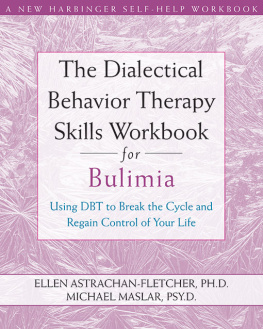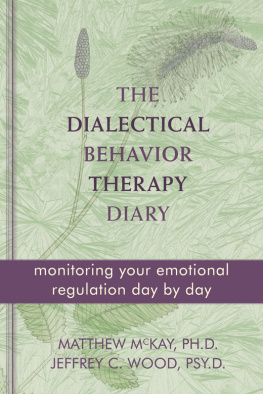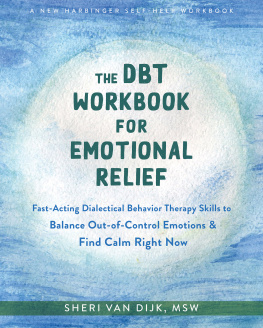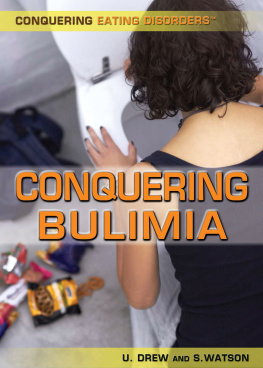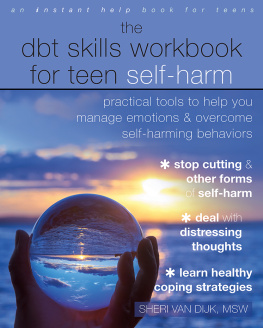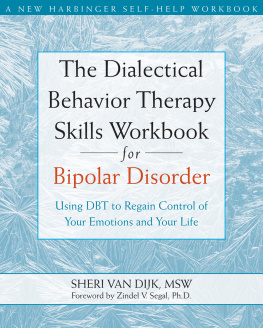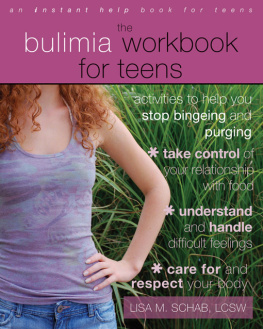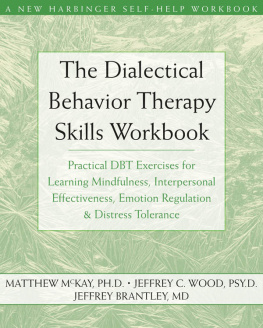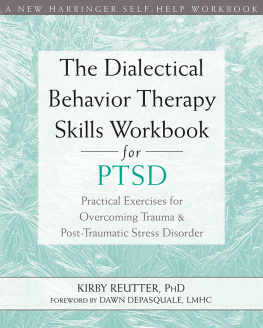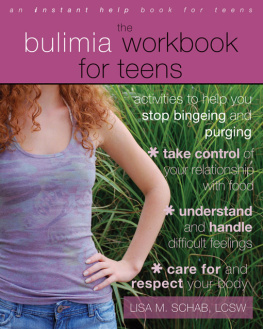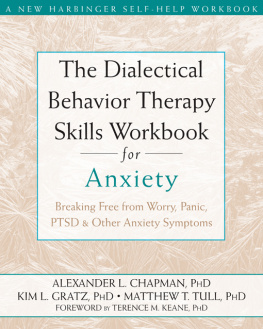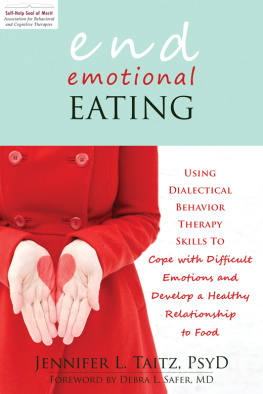Ellen Astrachan-Fletcher - The Dialectical Behavior Therapy Skills Workbook for Bulimia: Using DBT to Break the Cycle and Regain Control of Your Life
Here you can read online Ellen Astrachan-Fletcher - The Dialectical Behavior Therapy Skills Workbook for Bulimia: Using DBT to Break the Cycle and Regain Control of Your Life full text of the book (entire story) in english for free. Download pdf and epub, get meaning, cover and reviews about this ebook. year: 2009, publisher: New Harbinger Publications, genre: Religion. Description of the work, (preface) as well as reviews are available. Best literature library LitArk.com created for fans of good reading and offers a wide selection of genres:
Romance novel
Science fiction
Adventure
Detective
Science
History
Home and family
Prose
Art
Politics
Computer
Non-fiction
Religion
Business
Children
Humor
Choose a favorite category and find really read worthwhile books. Enjoy immersion in the world of imagination, feel the emotions of the characters or learn something new for yourself, make an fascinating discovery.
- Book:The Dialectical Behavior Therapy Skills Workbook for Bulimia: Using DBT to Break the Cycle and Regain Control of Your Life
- Author:
- Publisher:New Harbinger Publications
- Genre:
- Year:2009
- Rating:3 / 5
- Favourites:Add to favourites
- Your mark:
The Dialectical Behavior Therapy Skills Workbook for Bulimia: Using DBT to Break the Cycle and Regain Control of Your Life: summary, description and annotation
We offer to read an annotation, description, summary or preface (depends on what the author of the book "The Dialectical Behavior Therapy Skills Workbook for Bulimia: Using DBT to Break the Cycle and Regain Control of Your Life" wrote himself). If you haven't found the necessary information about the book — write in the comments, we will try to find it.
At the root of bulimia is a need to feel in control. While purging is a strategy for controlling weight, bingeing is an attempt to calm depression, stress, shame, and even boredom. The Dialectical Behavior Therapy Skills Workbook for Bulimia offers new and healthy ways to overcome the distressing feelings and negative body-image beliefs that keep you trapped in this cycle.
In this powerful program used by therapists, youll learn four key skill sets-mindfulness, distress tolerance, emotion regulation, and interpersonal effectiveness-and begin using them right away to manage bulimic urges. The book includes worksheets and exercises designed to help you take charge of your emotions and end your dependence on bulimia. Youll also learn how to stay motivated and committed to ending bulimia instead of reverting to old behaviors. Used together, the skills presented in this workbook will help you begin to cope with uncomfortable feelings in healthy ways, empower you to feel good about nourishing your body, and finally gain true control over your life.
This book has been awarded The Association for Behavioral and Cognitive Therapies Self-Help Seal of Merit an award bestowed on outstanding self-help books that are consistent with cognitive behavioral therapy (CBT) principles and that incorporate scientifically tested strategies for overcoming mental health difficulties. Used alone or in conjunction with therapy, our books offer powerful tools readers can use to jump-start changes in their lives.
Ellen Astrachan-Fletcher: author's other books
Who wrote The Dialectical Behavior Therapy Skills Workbook for Bulimia: Using DBT to Break the Cycle and Regain Control of Your Life? Find out the surname, the name of the author of the book and a list of all author's works by series.

